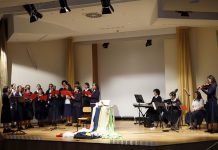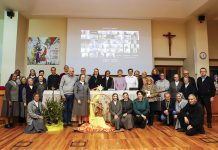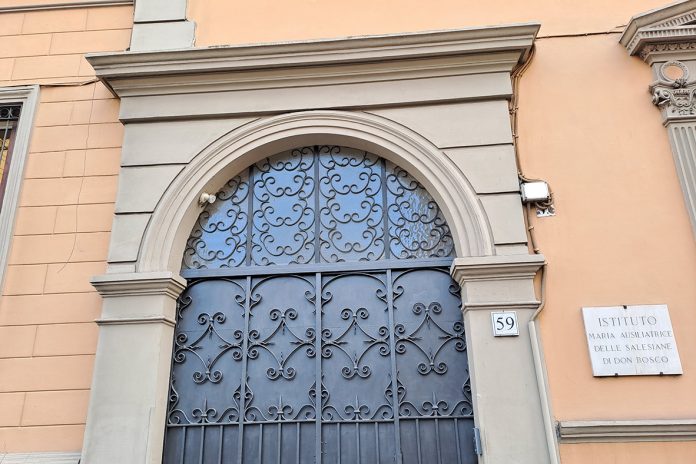Rome (Italy). International Holocaust Remembrance Day is celebrated on 27 January 2023, on the anniversary of the liberation of the Auschwitz concentration camp in Germany, which took place on the same day in 1945. The anniversary, already commemorated by some countries, in Germany since 1996 and in Italy since 2001, was established worldwide on 1 November 2005 by the United Nations, on the 60th anniversary of the end of the Second World War.
At the end of the General Audience of 25 January 2023, Pope Francis recalled the Day, emphasizing the importance of not forgetting this extermination of human lives and of eradicating hatred:
“The memory of that extermination of millions of Jewish people and of other faiths can neither be forgotten nor denied. There cannot be a constant commitment to building fraternity together without having first dissipated the roots of hatred and violence that fueled the horror of the Holocaust.”
Over the years, the lack of direct witnesses of the Holocaust, both those who escaped persecution and those who witnessed the events, puts at risk the memory of these events that have marked human history, which is fundamental for educating the new generations to peace and fraternity, and to avoid as much as possible that similar atrocities are repeated.
For this reason, the historical collection of direct or indirect testimonies acquires great importance, such as those of the Religious who in those years were courageous protagonists in charity, hiding hundreds of Jews in their environments, without escaping the risk of denunciation and incarceration.
Among these, the Daughters of Mary Help of Christians of the Communities of Rome, of St John Bosco Province (IRO), from autumn 1943 to 4 June 1944, during the occupation of the capital by the Germans, opened basements and attics to the acceptance of a large number of displaced persons. This is an unspecified figure, given that these ‘transits’ hardly ever appeared in the chronicles and documents of the House, precisely so as not to compromise the safety of the Sisters and the ‘protected’.
In a testimony collected in 2002, Sr. Pia Palombi, FMA who had been in Rome since 1943 in the house in via Marghera, recounts, “We welcomed them, hiding them not only in the reception room, but we occupied all possible spaces with them in the house and above all the area of the hostel that was accessed from the basement, passing through an internal spiral staircase that was quite hidden from outside eyes. Indeed, to enter it, a door had been built that was invisible to those who looked from the outside, so much so that this door had been whitewashed like the wall precisely so as not to notice in the slightest way that there was an entrance door.
These Jewish families stayed in our house day and night, and we committed ourselves to feed them and make them feel good. I don’t remember exactly how many people and families there were; I know they were really many, because each of us Sisters, over fifty, had given them the second habit to wear in case of emergency” (G. Loparco, Jews and many others hidden in the Religious Institutes of Rome, in G. Vecchio – edited by – The Sisters and the Resistance, Milan, In dialogue 2010, p. 281-374).
Also, in via Marghera, a few years ago, Sr. Claudia Daretti, as Provincial Secretary, collected various testimonies of the FMA who welcomed Jewish refugees in the houses of Rome. In a gentle, passionate voice, she adds:
“The Jews are hardly ever mentioned in the chronicles. They did this for reasons of prudence. They dressed the women up as sisters and gave them tasks, like ironing or other, so that they looked like people from the Community. Since there was a camp, the children were put together with the others. Sr. Pia recounted that when there was an inspection by the soldiers, she answered normally, saying that they were all children of the camp. They didn’t notice anything, but when they went away, she almost fainted, so great was her anguish.
Here many were housed on the third floor and were locked inside all day. Two Sisters who have already passed away, took care of them and had confided in me that the Sisters of the Community knew almost nothing, for the sake of prudence. They alone went to bring food to these people, who could not move or be seen from the window. Only at night did they come out of a little door and go downstairs to be able to get some air.
These people found a great welcome and remained very grateful. As far as I know, they were never found in our houses; they always remained hidden until the end of the war. The Sisters did everything with the fear of being discovered, but with great availability, without anything ever happening to them”, concludes Sr. Claudia.
Home And Belonging – is the theme of Remembrance Day 2023, with the intention of reflecting in particular on the meanings of these concepts, radically questioned by the authors of the Holocaust. These are, in fact, two fundamental needs for every man and every woman, which challenge their own humanity and help to strengthen the sense of responsibility in countering prejudices and hate speech.
In the FMA communities of Rome, as in many other religious Institutes and in the homes of benefactors, many Jews were able to find hospitality and even ‘feel at home’, as emerges above all from the testimonies of children who, albeit in that terrible context, were able find some relief.
Keeping these testimonies alive, even if unfortunately, less and less direct, helps to identify oneself with the situations of anguish and difficulty that even men and women of today do not lack, and to renew the commitment towards all “creatures like us”, with joy in the hearts of Sisters like Sister Pia who affirm:
“I can say that, while we were worried day and night amidst dangers, hardships, and sacrifices, we felt so much joy in our hearts to be able to save the lives of creatures like us, and we felt that Jesus was with us to help and support us”.





















Sempre mi commuove la storia dell’Olocausto e non vorrei proprio che si ripeta; SHALOM pienezza di vita per ogni creatura umana. Prego per coloro che stanno progettando il male per l’umanita’ intera.
Visitando Auschwitz in Polonia (non in Germania; la c’e Dachau) anch’io svenivo dall’orrore,
visitando Yad w Sham in Israel i miei sentimenti e reazioni erano offuscati e confusi …
ripetevo le parole del papa “Mai più la guerra, mai più la guerra”.
Ora mi rimane da pregare tanto , tanto, perché cresca l’uomo di pace e non di violenza…
Grazie per la ricerca delle testimonianze. Fanno bene e sono convincenti.